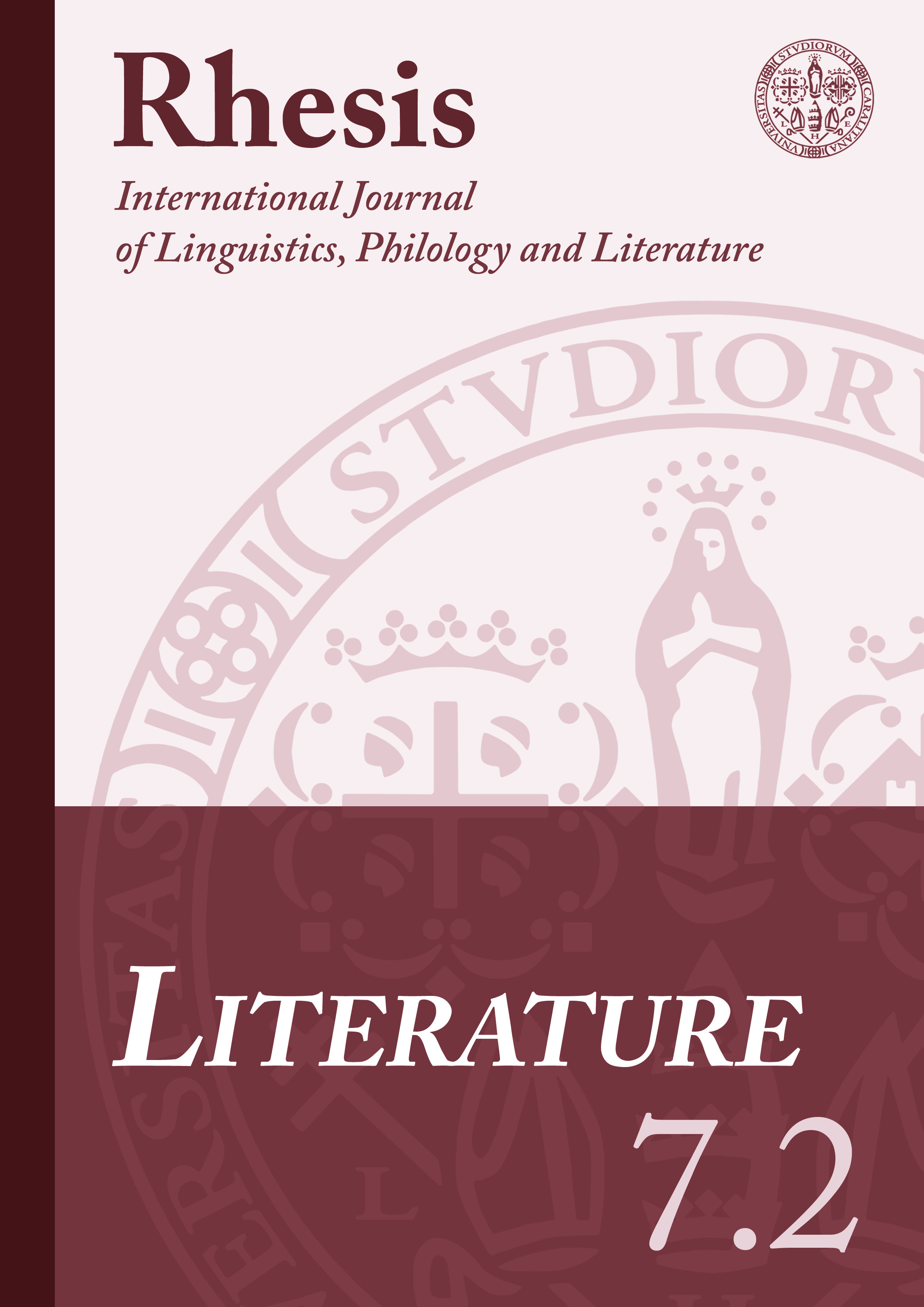Coloro che si considerano “eccezioni”: La desheredada di Benito Pérez Galdós
Abstract
This work aims at analyzing La desheredada by Benito Pérez Galdós from a psychoanalytic perspective. The main purpose consists in identifying the traits of character that Freud attributes to the so called “Exceptions” in its protagonist.
The author’s artistic economy, that does not enable the heroine to express her secret motives openly, leads to look for such traits in the narrator’s allusions to her character and in the attitudes attributable to those who consider themselves exceptions.
The analogies lie in the rebellion against the unavoidable submission to the rules of necessity by renouncing those satisfactions doomed to detrimental consequences, accepting sacrifice only for a better end’s sake. Faced with the necessity of exchanging the immediate pleasure for a safer one, Exceptions say that they have suffered and renounced enough, having thus the right to avoid any further self-denial and expect compensation for their sufferings.
These, in conclusion, are the desheredada’s secret motives, that the author hides in order to raise a subtle background of sympathy based on understanding and identification. Galdós’ heroine, actually, becomes a hyperbolic projection of something existing in everyone, because, deep down, we all would like to be an exception and claim more privileges than the others.
Downloads
References
BENÍTEZ, Rubén, Cervantes en Galdós, Murcia, Universidad de Murcia, 1990.
BRAVO VILLASANTE, Carmen, “El mundo de La desheredada. El naturalismo en España”, Alicante, Biblioteca Virtual Miguel de Cervantes, 2011, Edición digital a partir de «Cuadernos Hispanoamericanos», 230 (febrero 1969), pp. 479-486.
CARDONA, Rodolfo, “Cervantes y Galdós”, «Letras de Deusto», 4 (1974), pp. 189-205.
DENDLE, Brian J., “Galdós, Zola y el naturalismo de La desheredada”, in Yvan LISSORGUES (ed.), Realismo y naturalismo en España en la segunda mitad del siglo XIX, Actas del Congreso Internacional (Universidad de Toulouse-Le Mirail, 3-5 de noviembre de 1987), Barcelona, Anthropos, 1988, pp. 447-459.
FREUD, Sigmund, Alcuni tipi di carattere tratti dal lavoro psicanalitico, Le “Eccezioni”, in Opere Complete, ed. Cesare MUSATTI, Torino, Bollati Boringhieri, 2013, pp. 9302-9314 (formato digitale).
FRIEDMAN, Norman, “Point of View in Fiction. The Development of a Critical Concept”, «PMLA», LXX (1955), pp. 1160-1184.
GARCÍA, Antonio M., “Antecedentes literarios y estéticos del naturalismo galdosiano: La desheredada”, in Actas del Cuarto Congreso Internacional de estudios galdosianos, vol. 2, Las Palmas de gran Canaria, Ediciones del Cabildo insular de Gran Canaria, 1993, pp. 439-456.
GARCÍA SARRIÁ, Francisco, “Acerca de La desheredada, de Benito Pérez Galdós”, in Actas del Primer Congreso Internacional de Estudios Galdosianos (1977. Las Palmas de Gran Canaria), Madrid, Editora Nacional, 1977, pp. 414-418.
GULLÓN, Germán, “Originalidad y sentido de La desheredada”, «Anales Galdosianos», 17 (1982), pp. 39-49.
LÓPEZ-BARALT, Mercedes, La gestación de Fortunata y Jacinta, Río Piedras, Editorial Huracán, 1992.
MONTERO-PAULSON, Daria J., La jerarquía femenina en la obra de Galdós, Madrid, Editorial Pliegos, 1988.
PÉREZ GALDÓS, Benito, Torquemada en la hoguera, Madrid, Alianza Editorial, 1996.
PÉREZ GALDÓS, Benito, La desheredada, Madrid, Alianza Editorial, 2005 (formato digitale).
RISLEY, William R., “La desheredada: el ‘nuevo’ Galdós y el comienzo de la gran novela española de la década de 1880”, «Boletín de la Biblioteca de Menéndez Pelayo», 63 (1987), pp. 197-212.
ROBIN, Claire-Nicolle, Le Naturalisme dans “La Desheredada” de Pérez Galdós, Paris, Belles Lettres, 1976.
RODGERS, Eamonn, “Galdós’ La Desheredada and Naturalism”, «Bulletin of Hispanic Studies», 45 (1968), pp. 285-298.
RUIZ SALVADOR, Antonio, “La función del trasfondo histórico en La desheredada”, «Anales Galdosianos», 1 (1966), pp. 53-62.
SÁEZ, Adrián J., “La muerte de Rufete y algunos locos en La desheredada: un par de cuestiones cervantinas”, in Carlos MATA INDURÁIN (ed.), Recreaciones quijotescas y cervantinas en la narrativa, Universidad de Navarra, EUNSA, 2013, pp. 275-287.



